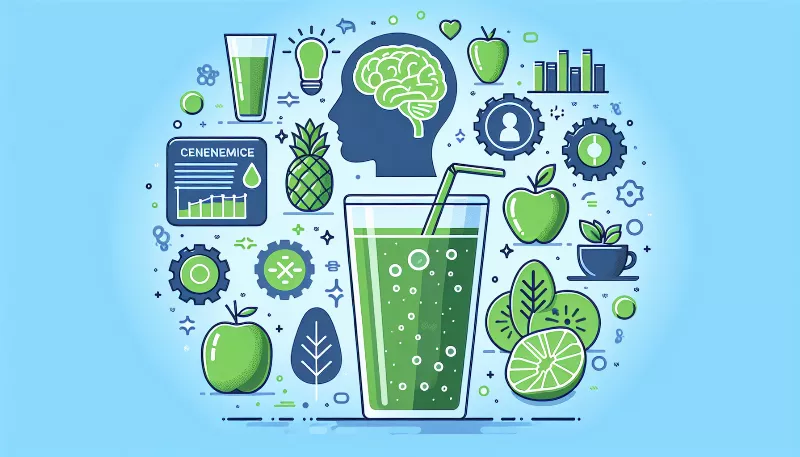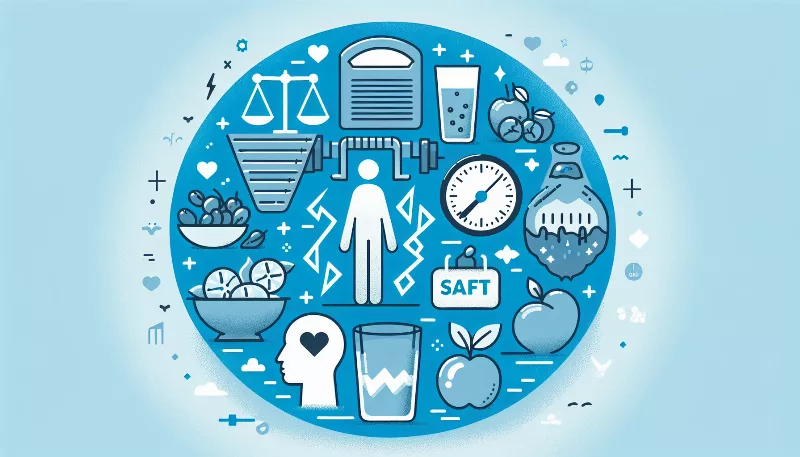What are the potential risks associated with detox fasting?
Discover the hidden dangers of detox fasting before you start. Learn about the health risks and how to fast safely in our comprehensive guide.

Embarking on a Journey of Detox Fasting
Detox fasting has become a buzzword in the wellness community, promising a reboot for your body and a pathway to improved health. Enthusiasts rave about the benefits, from weight loss to clearer skin and better digestion. However, it's crucial to approach this journey with both eyes open, recognizing that detox fasting isn't without its risks. Let's dive into the potential pitfalls that can accompany this health trend, ensuring you're fully informed before you embark on your fasting voyage.
Navigating Nutritional Deficiencies
When you fast, your body is temporarily deprived of the nutrients it usually gets from food. While short-term fasting may not lead to severe deficiencies, extended periods of detox fasting can result in a lack of essential vitamins and minerals. This can lead to a host of issues, including weakened immunity, fatigue, and anemia. It's like setting sail without a compass; you need to ensure you have the right provisions to reach your destination safely.
Understanding the Impact on Metabolism
Detox fasting can sometimes send mixed signals to your metabolism. Initially, your body may adapt by conserving energy, potentially slowing down your metabolic rate. This is your body's survival mechanism kicking in, akin to dropping anchor in a storm. While this might sound beneficial, it can actually make it harder to maintain weight loss in the long run, as your body becomes more efficient at operating on fewer calories.
Recognizing the Risks for Certain Groups
Not all adventurers are suited for the high seas, and similarly, not everyone is a good candidate for detox fasting. People with certain medical conditions, such as diabetes, heart disease, or kidney problems, should steer clear of fasting or navigate it under close medical supervision. Pregnant women and individuals with a history of eating disorders should also avoid fasting, as it could jeopardize their health and well-being.
Confronting Potential Electrolyte Imbalances
Electrolytes are the body's spark plugs, essential for conducting electricity and keeping everything running smoothly. During detox fasting, levels of electrolytes such as sodium, potassium, and magnesium can drop, leading to dizziness, irregular heartbeat, and muscle cramps. It's like sailing through choppy waters without a fully functioning engine; you need to keep your electrolytes balanced to maintain a steady course.
Dealing with Detox Symptoms
As your body adjusts to the lack of incoming food, it may begin to cleanse itself of toxins. This process can cause uncomfortable detox symptoms, often referred to as the 'healing crisis.' You might experience headaches, nausea, or irritability, akin to weathering a storm on your fasting journey. While these symptoms are usually temporary, they can be intense and unpleasant, testing the resolve of even the most dedicated health seekers.
Final Thoughts: Charting a Safe Course
Detox fasting can be a powerful tool for health and rejuvenation, but it's important to chart a safe course. By being aware of the potential risks and consulting with healthcare professionals, you can ensure that your fasting journey is as smooth and beneficial as possible. Remember, every body is unique, and what works for one person may not work for another. Listen to your body's signals, and don't hesitate to adjust your sails if you encounter rough waters on your detox fasting adventure.










